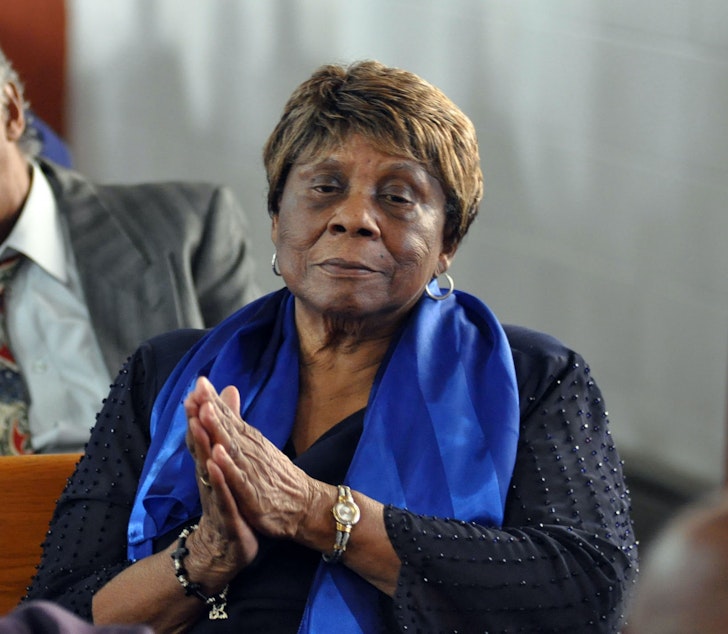Radio Diary: A Beloved Grandmother's Gift Of A Better Life

Cozy Etta Bryant built a life and a nest egg for herself and her family, all while navigating the racism of 20th century America.
Bryant was born in Pine Bluff, Arkansas, the daughter of a sharecropper. She moved north in 1943 to escape the economic and social oppression of the Jim Crow south, bundling three children and an infant into a box train headed for Chicago.
When they became one of the first families to buy a house in a traditionally white neighborhood on the South Side, they were greeted with threats and attacks from resentful white neighbors.
“What they had to go through to live was absolutely incredible,” says Adrienne Samuels Gibbs, Bryant’s granddaughter. “But they made it.”
Bryant, despite never receiving education beyond 8th grade, was able to save enough throughout her life working as a lunch lady to help her children, and their children, attend college.
“She was just happy that we were successful and we had the choice to do what we wanted to do, and not have to do what someone told us to do,” Gibbs says.
After weathering decades of racism and a battle with breast cancer, Bryant died last month at age 94 from COVID-19, a disease that disproportionately effects people of color.
Gibbs wonders if, without the kinds of lifelong health disparities Black Americans face, her grandmother might still be alive.
“I wonder, if we didn’t have the structural inequities that led to bad water, bad air, food deserts, diabetes, and difficult access to medical care that is not influenced by racism, how much longer could she have lived?”
Her legacy, though, lives on in Gibbs, and in the lives led by the family that loved her. But Gibbs says there’s more work to be done.
“She came up here to have a better life. And we have got to make it better,” she says. “We are not done.”
In this diary … we hear from:
Adrienne Samuels Gibbs, features editor at ZORA magazine and for Momentum, two Medium publications. (@AdrienneWrites)
This article was originally published on WBUR.org. [Copyright 2020 NPR]
